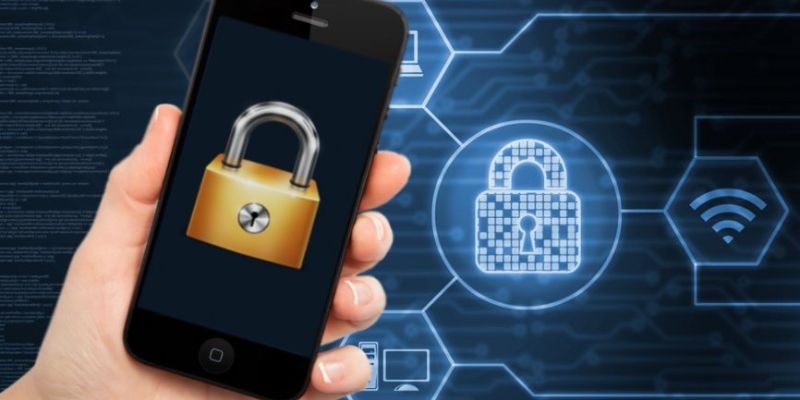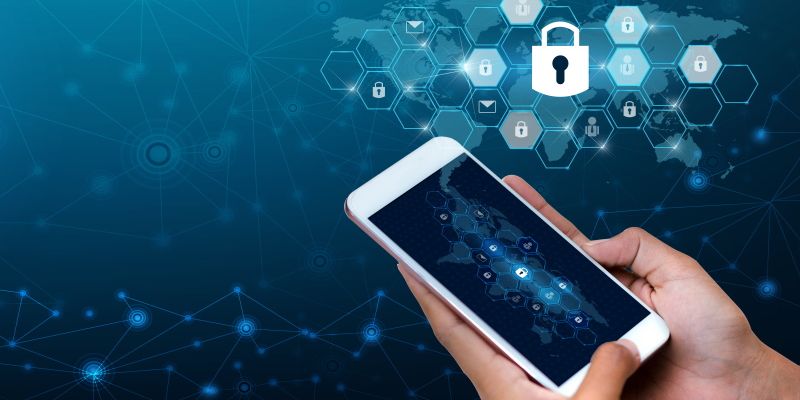As the world becomes increasingly reliant on smartphones, the need to protect these devices from hacking is more important than ever. Our smartphones contain a wealth of sensitive information, making them an attractive target for hackers. To help you safeguard your personal and professional data, we have compiled a list of essential tips to secure your smartphone effectively.
1. Add Extra Protection with Biometrics or Passwords

The first step in securing your smartphone is to lock it with biometric authentication, such as facial recognition or fingerprint scanning. These features provide an additional layer of security in case your phone gets lost or stolen. Additionally, use strong, unique passwords for the accounts and apps on your device. Take advantage of two-factor authentication whenever possible to further enhance your security.
2. Use a VPN for Secure Internet Connections
When accessing public Wi-Fi networks, always use a Virtual Private Network (VPN) to protect your data from prying eyes. VPNs encrypt your internet traffic, ensuring that your sensitive information remains confidential. With a VPN, you can confidently connect to unsecured public networks without worrying about hackers intercepting your data.
3. Stick to Trusted App Stores

To minimize the risk of downloading malicious apps, only install applications from reputable sources like Google Play Store for Android or Apple’s App Store for iOS. These platforms have stringent measures in place to detect and remove potentially harmful apps. Before downloading any app, carefully read the user reviews and check for any suspicious behavior or negative feedback.
4. Regularly Back Up Your Data
Protect your valuable data by regularly backing up your smartphone. This practice ensures that even if your phone is lost or stolen, you can easily restore your data onto a new device. Both iOS and Android devices offer straightforward ways to back up your data, either through cloud services or by connecting to a computer.
5. Enable Remote Locking and Wiping

In the unfortunate event of losing your smartphone, it’s crucial to have the ability to remotely lock or wipe your device. This feature prevents unauthorized access to your personal and professional data. By regularly backing up your data, you can confidently wipe your device remotely, knowing that your information is safely stored in the cloud.
6. Remove Unnecessary Apps and Update Regularly
Take the time to review the apps on your smartphone regularly. Delete any apps that you no longer use, as they can pose security risks. Some apps may have associated accounts that store data off your phone, so be sure to delete those accounts as well. For the apps you keep, make sure to update them regularly as updates often include important security patches.
7. Install Security Software
To provide an extra layer of protection, consider installing reputable security software on your smartphone. These security applications can detect and prevent malicious activity, safeguarding your data, online transactions, and personal information. Whether you use an Android or iOS device, there are various security software options available, such as McAfee+.
By following these seven essential tips, you can significantly enhance the security of your smartphone and protect your personal and professional information from hackers. Remember, taking proactive steps to secure your smartphone is vital in today’s digital landscape.
FAQs

Q: Is it necessary to use a VPN on public Wi-Fi networks?
A: Yes, using a VPN on public Wi-Fi networks is highly recommended. It encrypts your internet connection, ensuring that your sensitive data remains secure from hackers and cybercriminals.
Q: Can I delete apps that I no longer use?
A: Yes, it is highly recommended to delete apps that you no longer use. Not only does it free up storage space, but it also reduces the potential security risks associated with outdated and unsupported apps.
Q: How often should I update my apps?
A: It is best to update your apps as soon as new updates become available. App updates often include bug fixes and security patches that address known vulnerabilities, helping to keep your device secure.
Conclusion
Securing your smartphone is essential to protect your personal and professional data from hacking attempts. By implementing these seven essential tips, you can significantly enhance the security of your device and minimize the risk of unauthorized access to your sensitive information. Remember to remain vigilant and stay informed about the latest security threats to ensure your smartphone remains a safe and trustworthy tool in your daily life. Stay safe and secure with your smartphone!




